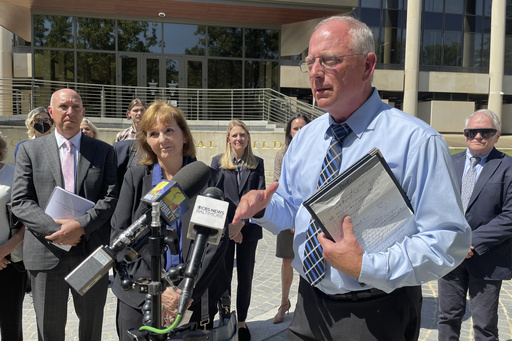
ANNAPOLIS, Md. — On Monday, Maryland’s Supreme Court affirmed the constitutionality of a recent law that eliminated the statute of limitations for lawsuits concerning child sexual abuse. This decision followed a thorough investigation that unveiled widespread misconduct within the Archdiocese of Baltimore.
The court reached a 4-3 decision to uphold the 2023 legislation, asserting that the Maryland General Assembly possessed the legal authority to enact such changes. The justices deliberated on the matter in September, evaluating various arguments against the law. Critics pointed to a previous law from 2017, which imposed a deadline of 38 years of age for abuse victims to file lawsuits. The core issue was whether that statute indefinitely shielded certain defendants from legal actions. Ultimately, the court concluded that the state legislature can modify statutes of limitations, which was effectively what occurred with the passage of the 2023 law.
In the majority opinion, penned by Chief Justice Matthew Fader, the court emphasized that the statute created by the 2017 law served as a statute of limitations. The justices stated that the existence of a statute of limitations cannot confer a permanent exemption from the fundamental obligations arising from the underlying cause of action. “We further hold that it was within the power of the General Assembly to retroactively annul that statute of limitations,” the ruling declared. “Consequently, the Child Victims Act of 2023 is constitutional concerning the defendants in the three cases we examined.”
David Lorenz, who heads the Maryland chapter of the Survivors Network of those Abused by Priests, hailed the court’s ruling as a significant victory for survivors. “They will now have the opportunity to pursue justice and reveal the offenders who caused them harm—something the diocese has failed to accomplish,” Lorenz stated.
Defense attorneys representing those facing liability under the 2023 law argued that the 2017 legislation was structured in such a way that it offered certain defendants lifelong protection from lawsuits. They contended that the law encompassed a statute of repose, which, they insisted, could not be altered due to the conferral of “vested rights to be free from liability.”
The dissenting opinion from the court posited that the 2017 law indeed created a statute of repose regarding claims against non-perpetrator defendants. Justice Jonathan Biran observed, “Therefore, any claims targeting non-perpetrator defendants that were already untimely at the time the 2017 Act took effect, or those rendered untimely before the 2023 Act came into force, could not be reinstated without infringing on the vested rights of those defendants.”
In 2023, Gov. Wes Moore signed the Child Victims Act into law shortly after a state attorney general released a comprehensive report detailing extensive abuse by clergy in Baltimore over an 80-year period. The report accused church leaders of orchestrating coverups for decades and comprised nearly 500 pages, outlining instances involving over 150 Catholic priests and affiliated individuals who abused more than 600 minors. The investigative work began in 2019, during which officials reviewed over 100,000 documents dating back to the 1940s, interviewing numerous victims and witnesses.
Shortly before the new law was set to come into effect on October 1, 2023, the Archdiocese initiated a bankruptcy filing to safeguard its assets in anticipation of a significant influx of legal claims. Similar legislation has emerged in various states in recent years, often resulting in lawsuits that have led dioceses to seek bankruptcy protection.

